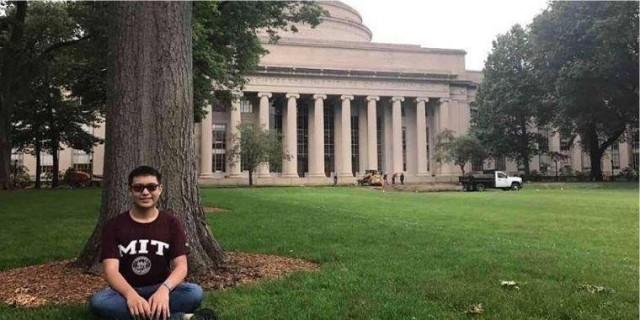Meet Farrell Eldrian Wu, the 17-year-old Pinoy mathlete recognized in the 2017 Putnam Competition
For Pinoy math genius Farrell Eldrian Wu, it’s all about faith in oneself and passion. Wu, who has won several math awards for the Philippines, has recently bagged an honorable mention in the 2017 William Lowell Putnam Mathematical Competition (Putnam Competition).
The Putnam Competition is the preeminent math competition for undergraduate college students based in the US and Canada.
Wu, who is currently a 17-year old undergraduate student at the Massachusetts Institute of Technology (MIT), said that he had to take a six-hour exam where he had to solve 12 problems which required ‘extensive creative thinking’.
In an exclusive interview with GMA News Online, Wu also talked about his love for Math, and his advice to all Pinoy kids who want to enter Math Olympiads. Below is our conversation with him.

Congratulations on your latest achievement! How does it feel to be the first Filipino to win in the most prestigious university-level Math competition in the world?
As a freshman undergrad, I am definitely humbled and overjoyed to win an Honorable Mention in this prestigious undergraduate Mathematical competition. The challenge to sit on this six-hour exam is not a walk in the park, because I was competing with the best math Olympians from around the world.
Being a Filipino, I have the #Tiwala and #Puso to face the challenge, and somehow be a trailblazer to the younger mathletes back home. I also wanted to prove that the Filipinos have what it took to stand with the best in competitive Mathematics.
What do you love about Math?
In the past, the main reason why I loved math was the enjoyment I had when solving complex mathematical problems, where I found the problem-solving thought process extremely engaging. I enjoyed how mathematical problem-solving was both exploratory, but at the same time, logical.
When I entered MIT, however, I realized that math served as the backbone for all quantitative fields, and that the methods covered in mathematics were widely used across all scientific disciplines. I especially love how math is the language used when expressing insights or quantifying phenomena. This, in turn, leads to technologies that make the world better.
Many Filipinos know math to be hard and too much of a nosebleed. What can you say about that?
To some extent, I acknowledge that math may be difficult, because of its abstract nature and the frequent difficulty on making connections to previously-learned material. It also takes much active effort and concentration to improve how one understands a mathematical concept.
Despite this, however, it is certainly possible for anyone to learn math, given sufficient time, preparation, and background knowledge.
The primary reason why math is known to be notoriously hard among Filipino students is the different styles of the reasoning and learning process involved. Unlike other subjects, math is based on a small number of central, but deep concepts.
_2018_02_28_10_50_48.jpg)
There is no instant gratification when studying math; this makes it likely for students without perseverance or grit to get frustrated. This frustration, unfortunately, would turn into hatred towards the subject and a self-assessment that one is bad at mathematics, which would fuel a self-destructive cycle.
To avoid this cycle, it is necessary for students to approach studying math with an open mind and patience. There’s nothing wrong with the sentiment that mathematics is hard, but one must use it as encouragement to be patient with oneself when it comes to mathematics, rather than simply giving up.
Any plans for the future after you graduate from MIT?
My first semester at MIT made me realize the vast possibilities as to how one’s mathematical and quantitative reasoning skill may be used. I am open to any field in which I am passionate in, where my skills would be the most helpful, and that I am confident would make a significant positive impact.
What is your advice to all kids in the Philippines who want to enter math Olympiads?
The most important piece of advice I could give is to find your own good reason as to why you want to be a math Olympian, and not treat competitions as the end-all of what you’re doing. You must realize early on that ‘competition is not your life’.
The skills you learn from math competitions must translate into something more meaningful. It’s more than just giving pride or serving as inspiration to your fellow Filipinos. Rather, the math skills you learn should be of tangible service to the community. That’s how you can make a positive impact to your country. — LA, GMA News
Interview edited and shortened for clarity





